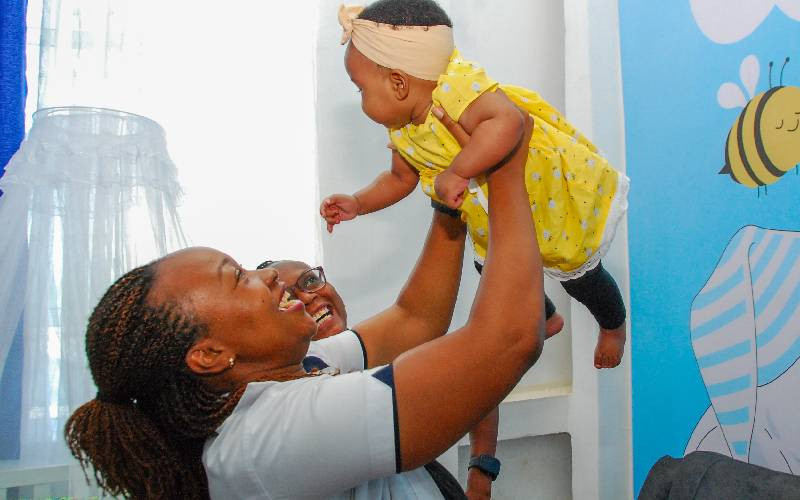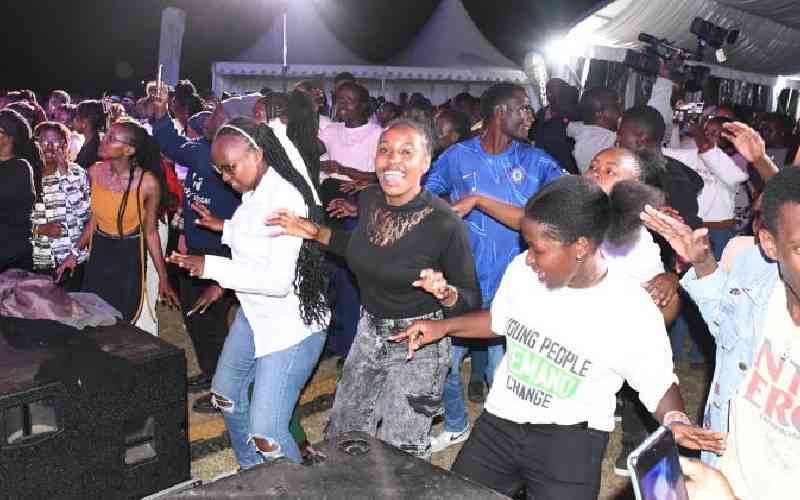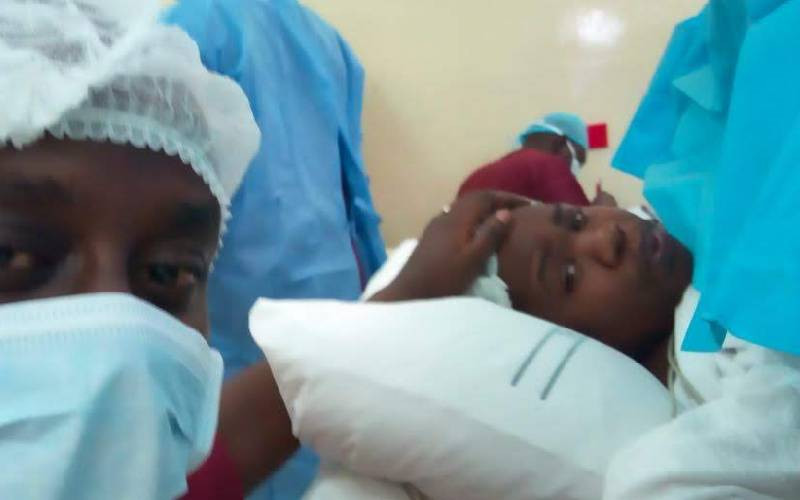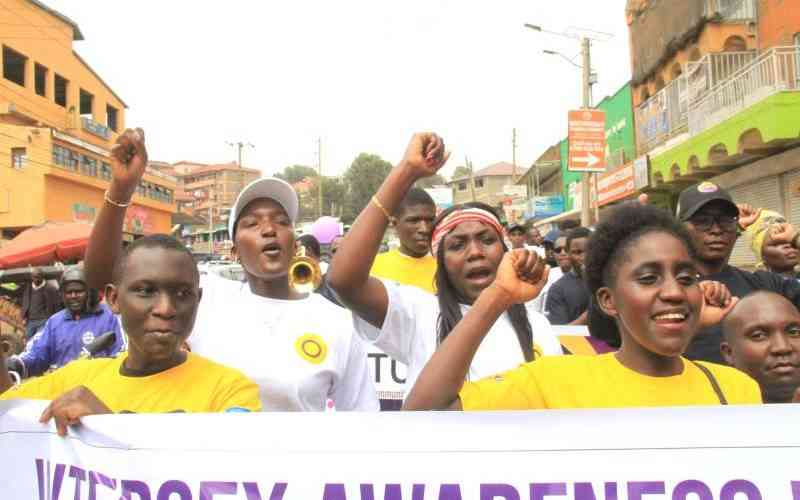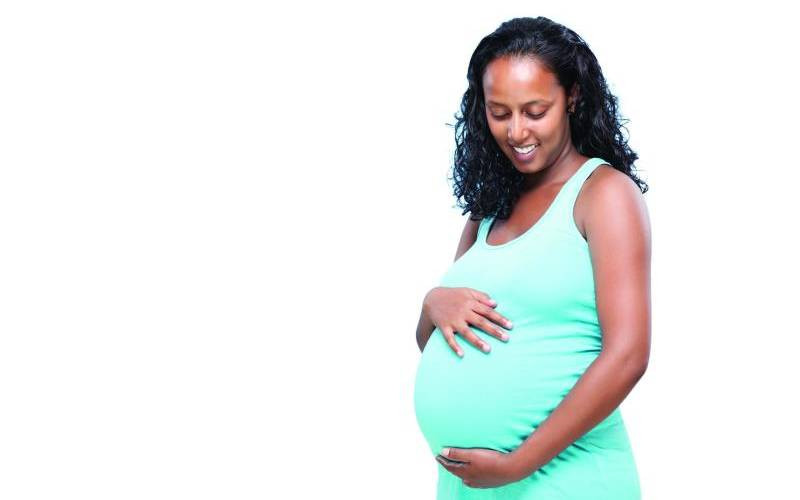
An ongoing medical camp in Kisii County has so far detected the cancer-causing human papillomavirus (HPV) in 300 women after 3,000 women aged between 18 and 58 years were screened in three sub-counties.
The self-collection cervical cancer screening process has been quick and easy for the women who were screened in Bobasi, Nyaribari Masaba and Bomachoge Borabu Sub Counties.
Most women didn't even realise there was an option to collect the sample themselves until the visiting doctors offered it as a choice. The alternative is to have the sample collected by a medic who uses a small brush is used to gently remove cells from the surface of the cervix and the area around it so they can be checked.
Mary Kemunto, 45, says that the self-collection method made her feel really confident.
"I had my private space to take my own sample. The privacy and comfort while getting the sample have attracted most women into giving in to the screening."
Cecilia Nyamoita, a mother of five says the old generation didn't talk about cancer screening much.
"We want to reverse this trend and be open about cervical cancer screening, especially with our young daughters."
- AAR Hospital cuts cancer screening costs
- How olive oil suppresses breast cancer
- Experts ramp up drive to demystify HPV vaccine
- HPV self-testing set to revolutionise cervical cancer detection in Kenya
Keep Reading
If HPV is found in one's self-collected Cervical Screening Test results, healthcare providers will recommend one returns so that they can collect a cervical sample to investigate further.
The camp was organised in collaboration between an American Non-Governmental Organisation; Preventing Cancer Globally (PINCC) and a section of Kisii County MCAs.
Michael Motume, MCA Masige East says the region is losing a number of women to Cervical cancer due to late detection. "The screening is fast and easy, the results are almost instant and one receives her results to the phone in form of a text message."
Nominated MCA Damaris Nyanchoka believes the figures can go down once the community accepts to talk freely about cervical cancer.
"Our men must come out and accept to have their daughters and wives tested. We have free treatment for all those women who have tested positive during the exercise."
A Psychosocial Support (PSS) Officer, Nyanchoka argues that the new self-collection sample procedure has seen an increase in the number of women going for cervical cancer screening. PINCC Executive and Medical Director Dr Melissa Miskell says this is a different protocol than PINCC's traditional 'See-Treat-Train' programme. "This is our second camp where we will treat women who are all HPV positive. This means that every single woman seen will be treated with thermal ablation because they will all be HPV positive from self-testing. The goal of the pilot program will be to emulate and expand to additional Counties in Kenya and other countries," she says.
Cervical cancer is among the leading causes of cancer-related deaths for Kenyan women.
Cervical cancer is the second most common cancer among women in Kenya after breast cancer and fourth globally. It affects the neck of the womb with abnormal growth of cells lining the cervix but is preventable through vaccination.
Approximately, 99 per cent of cases are linked to human papillomavirus (HPV), a common virus transmitted through sexual contact.
Current estimates in Kenya indicate that every year 5,236 women are diagnosed with cervical cancer and 3,211 die from the disease.
WHO Cervical Cancer Elimination Strategy Targets for 2030 aims at having 90 percent of girls fully vaccinated with the HPV vaccine by the age of 15, 70 percent of women are screened with a high-performance test by 35 years of age and again by 45 years of age and 90 percent of women identified with the disease receive treatment.
As champions, Damaris and Motume are working to mobilise women to visit nearby health facilities and get screened.
A 2019 KEMRI survey conducted in Nyamira, Bomet and Kisii with its data analysed in 2020 showed that 17 per cent of the women had various types of HPV.
 The Standard Group Plc is a multi-media organization with investments in media
platforms spanning newspaper print
operations, television, radio broadcasting, digital and online services. The
Standard Group is recognized as a
leading multi-media house in Kenya with a key influence in matters of national
and international interest.
The Standard Group Plc is a multi-media organization with investments in media
platforms spanning newspaper print
operations, television, radio broadcasting, digital and online services. The
Standard Group is recognized as a
leading multi-media house in Kenya with a key influence in matters of national
and international interest.


